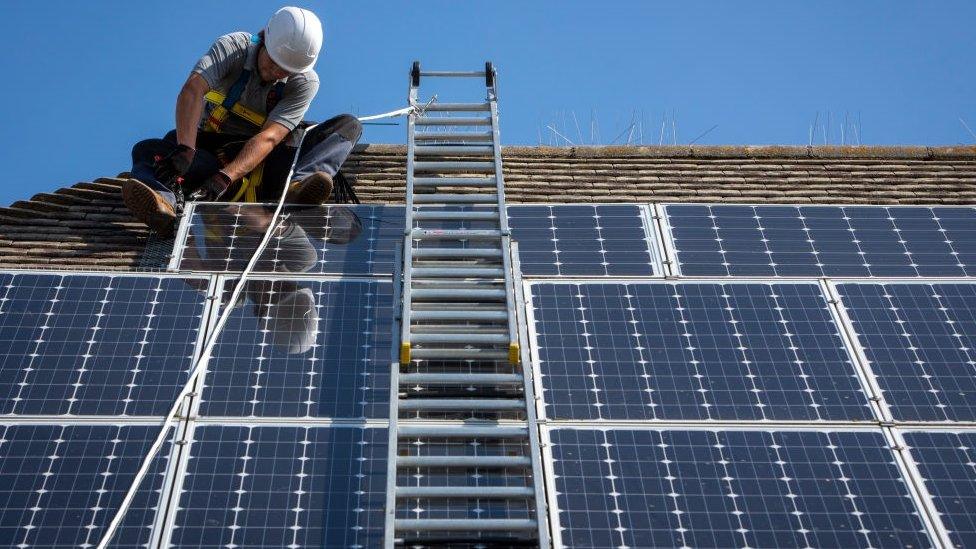Greener kitchen goods could save thousands, Which? suggests
- Published
- comments
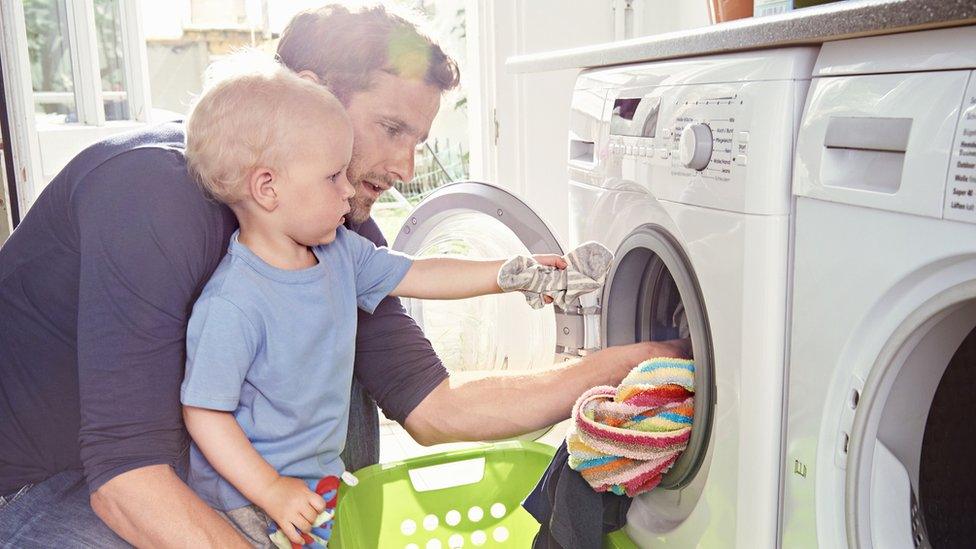
People could save thousands of pounds by opting to buy more energy efficient kitchen appliances, research suggests.
Significant savings can be made over the lifetime of a machine - even with those that are initially dearer to buy, the consumer group, Which?, said.
One £260 tumble dryer cost £135 a year to run - while a more efficient £800 dryer cost just £29 a year.
But charities criticised a "poverty premium" preventing those on low incomes from making efficiency savings.
Which? assessed tumble dryers, washing machines, fridge freezers, ovens and dishwashers using the current energy price cap.
The least efficient models in the study, external were found to collectively cost £490 a year to run - while the most energy-efficient cost £154 annually.
One vented tumble dryer, the Hoover HL V10LG-80, was priced £260 to buy while the most energy-efficient, the Miele TCB140 WP, was priced at £800.
In Which?'s lab testing, the Hoover cost £135 a year to run, while the Miele cost £29 a year - meaning that, assuming a 20-year lifespan of the dryer, those buying the Miele could save £1,580.
The most efficient washing machine model tested, the Ebac AWM74D2H, cost £15 a year in energy costs, while the least efficient model chosen, the Haier HW100-B14876, cost £70 annually.
Assuming a 16-year lifespan, the savings on running costs between them could be more than £800 - without factoring in the slightly higher purchase price.
The findings also suggested a potential to save more than £100 a year by opting for the most energy-efficient fridge freezer tested.
Which? said its own data suggested white goods in the study had expected lifespans of between 16 and 23 years, and it said consumers should consider a switch when their old white goods needed replacing.
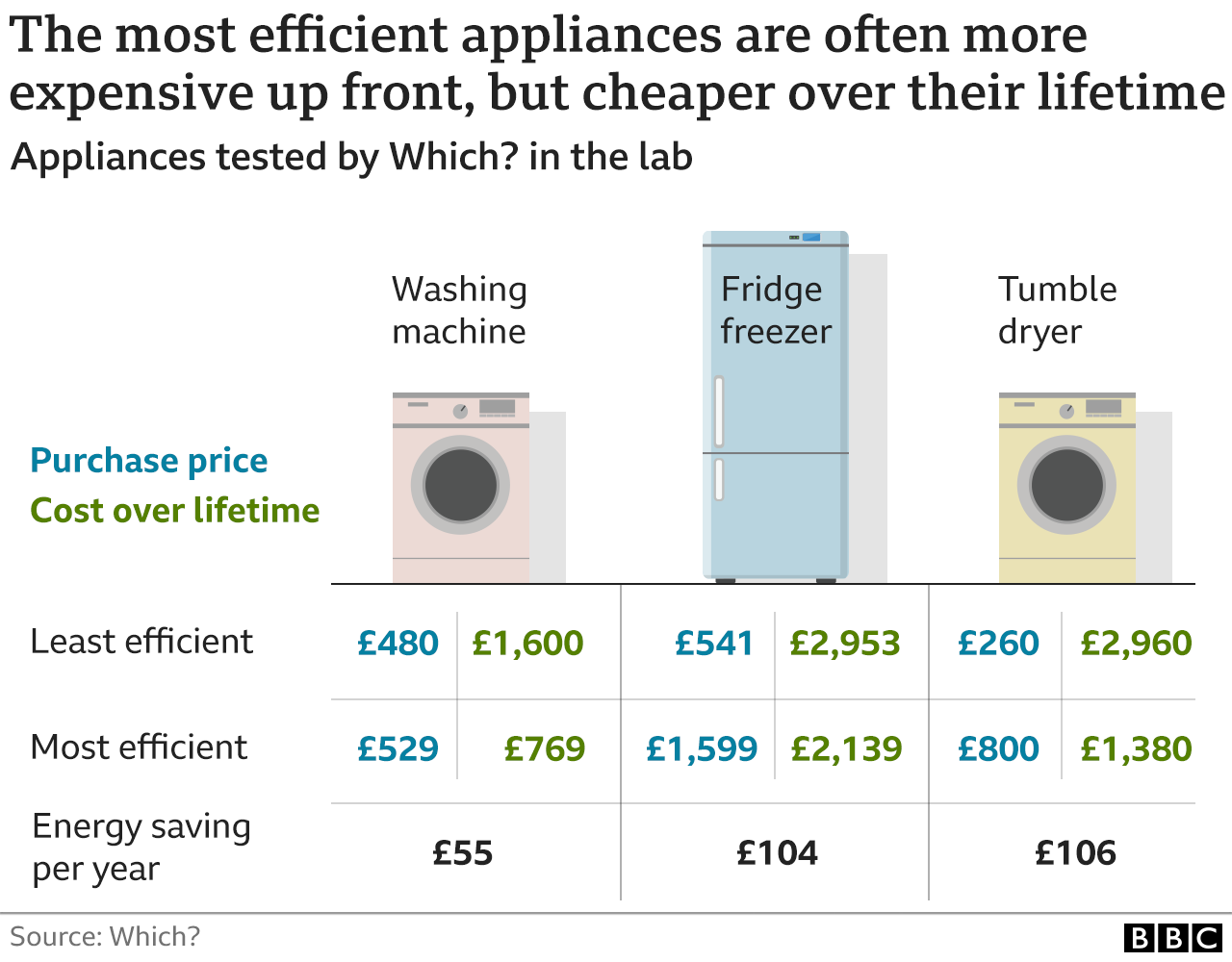

Charities said the luxury of buying the most efficient appliances - often more expensive - was likely to be beyond the reach of those on low incomes.
"Many people simply don't have the money available to pay initially higher prices for better, more efficient appliances, meaning they pay much more in the long run," David Steele, from The Money Charity, told the BBC.
Fair By Design, which campaigns against what it describes as "the extra costs of being poor", said affordable price protections were needed so poorer people were not "hit by a double whammy of high running costs".
Debt advice charity StepChange described a "poverty premium", saying people often went into debt after unforeseen expenditure on things such as replacing broken white goods. It suggested zero-interest loans should be more widely available.
Responding to Which?, Hoover promoted its more efficient heat pump appliances, saying it continued to invest in development. Haier said the model chosen had been discontinued.

THE FLUX IS COMING: Terrifying forces are stirring all across the universe, can the Doctor save us?
WHAT TO COOK FOR DIWALI: Delicious dishes to get you in the Diwali spirit!

- Published13 November 2024
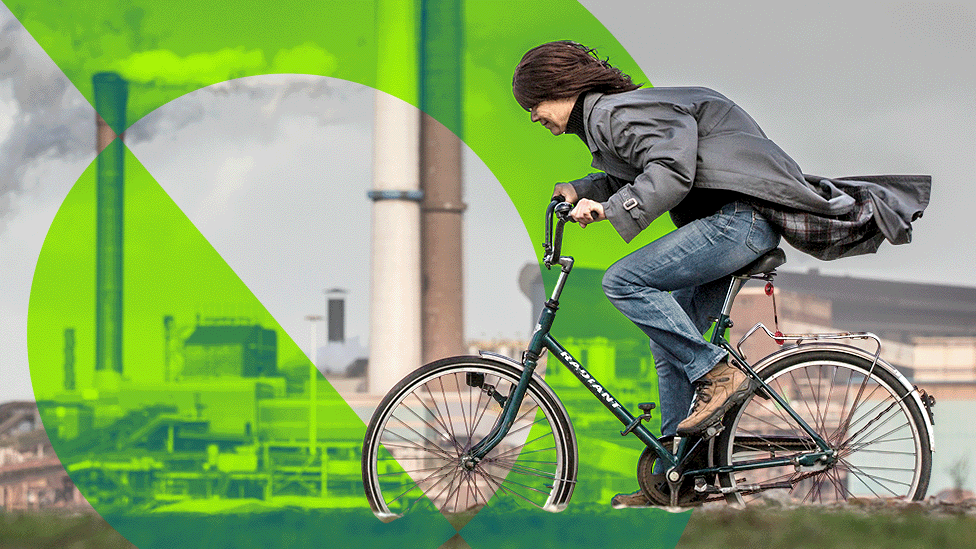
- Published23 July 2021
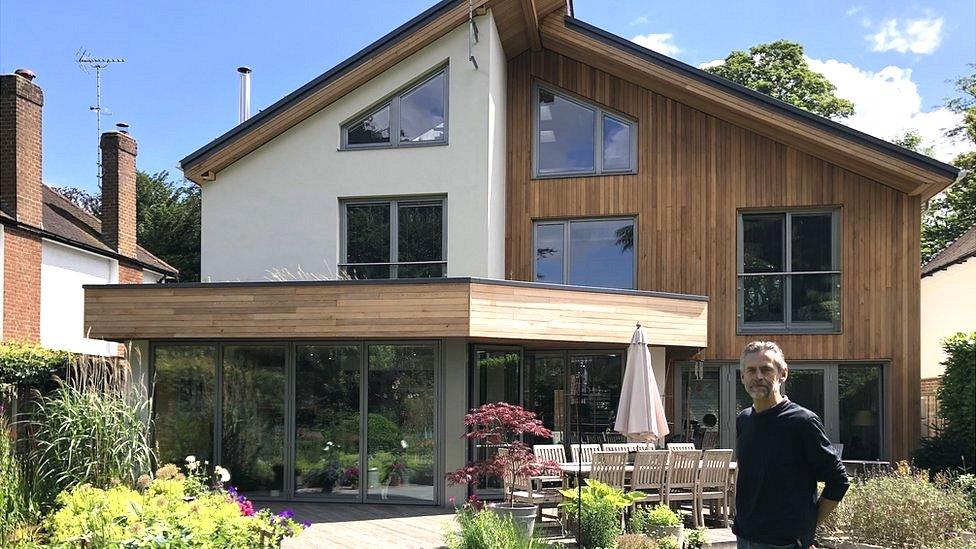
- Published20 June 2021
